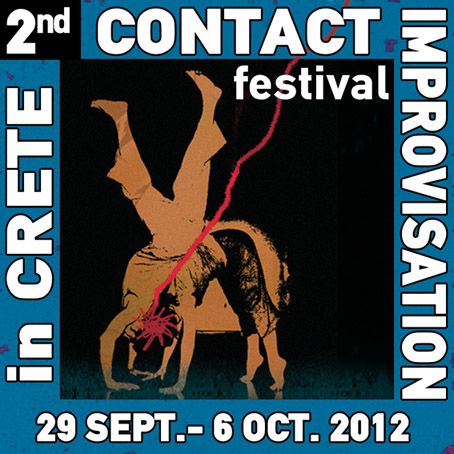Stephanie Maher
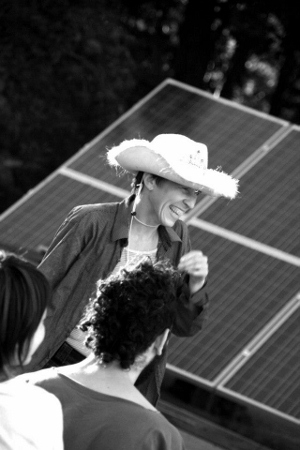
Stephanie Maher is a dancer, choreographer, improviser and teacher originally based in New york and then San Fransisco for 15 years. She is known for her breathtaking physicality and for creating works that express a unique blend of intimacy, sensitivity, and wild humor. She has been teaching Release-based technique and Contact Improvisation in an international setting since 1992. In 1998 Maher relocated to Berlin, Germany where she continued to perform, organize, develop and teach in the community-based settings of K77 Studios in Berlin and then created the Ponderosa Tanz/Land Festival in Stolzenhagen, Germany.
For more information: www.smaher.de
Contact Improvisation
Energy States & Contact Improvisation (Stephanie)
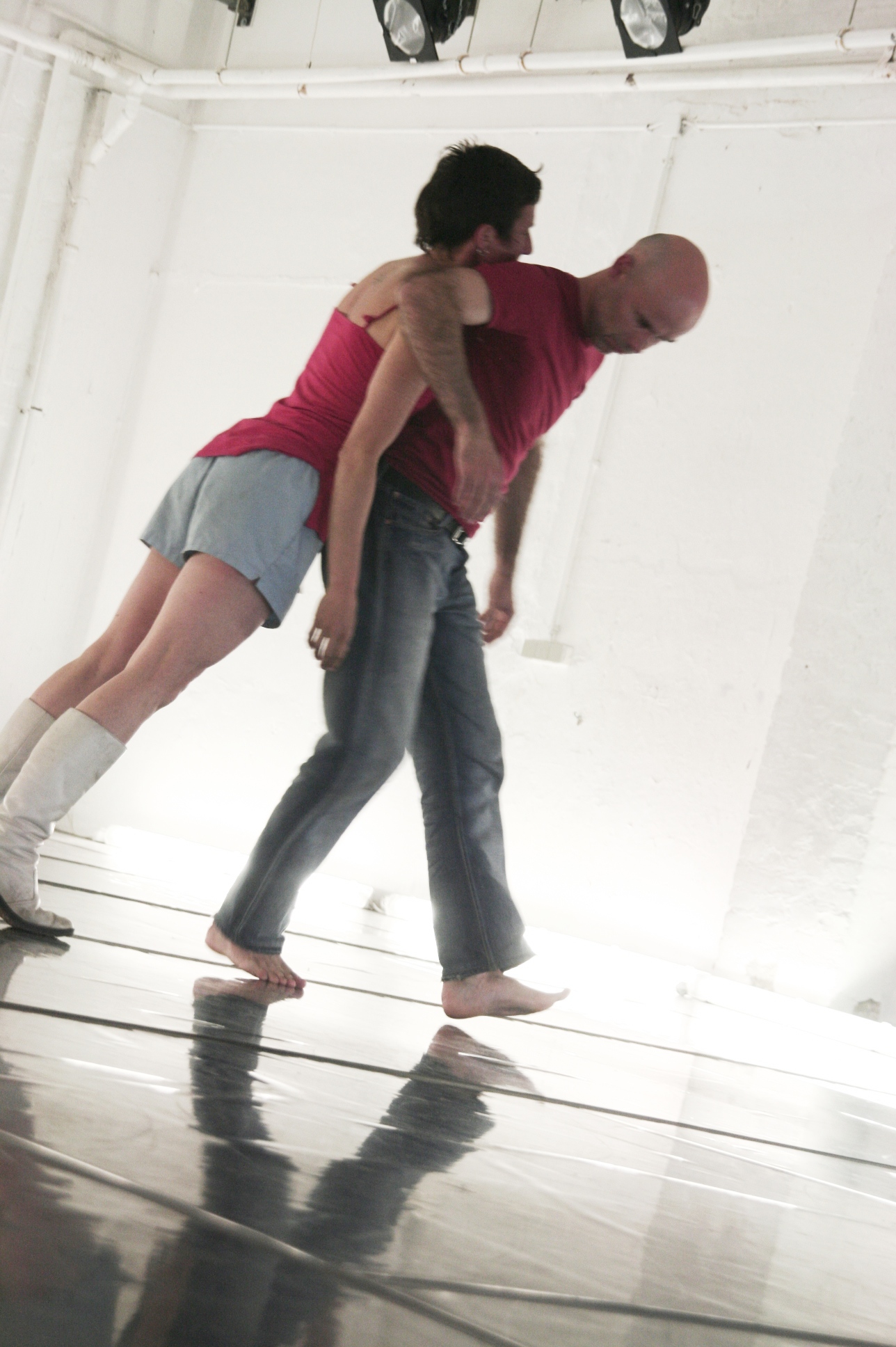
Finding the wonder of your partners form, touch, imagination, force and structure. Naming the senses and intelligence of the body as we form elaborate worlds within our improvisational minds. By working with clear alignment, we can enhance the tuning of catching, falling, rolling, inverting and retreating at the appropriate times. Listening to our limitations as a physical and changing body will allow us to find our power and range.
Ippokratis Veneris
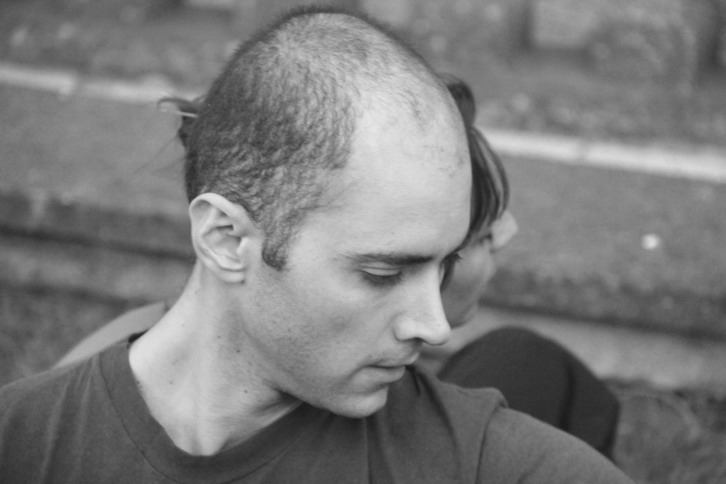
Born in Crete, he lives since 1998 in Rome. As a choreographer, dancer and improviser he has organized different art events in Rome, and in its nearby, in the last ten years. His original works (“Buongiorno Amore” 2009, “Afroditi” 2008) combine together elements of theatre and dance. He teaches regularly Contact Improvisation twice a week developing his own method and technique. Recently he collaborated (teaching) with the University “Roma Tre” with seminars about Pedagogy and CI.
In 2009 he received an open scholarship from the municipality of Rome to proceed with his research and in 2010 he received an open scholarship in Brussels (PARTS-ROSAS Dance Company).
His work has been presented in different theatres (Olympic theatre of Rome, Greek Theatre of Rome, collaborated with national Italian foundation of theatre and others).
Ippokratis is also a co-founder of RomaContact, a group of teachers and performers who organize workshops, events and festivals in Rome and central Italy.
Bodies Landscapes (Ippokratis)
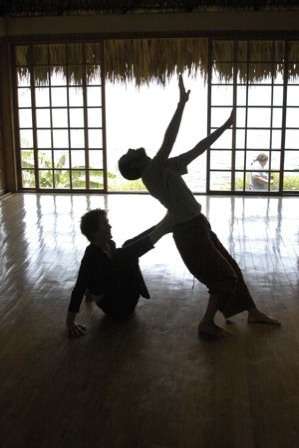
The partner: point of arrival and departure
The partner: its skin, its breath, its presence, its energy.
The dance in duet: communication, rhythm, listening, tuning, light-thinking, exploration, discovering, care, trust, game.
Our partner is a point of arrival and departure. He is a landscape through which we travel, we let ourselves go; a holy place, with all its energy, and profane together.
Physical and spiritual, adult and child.
The workshop will focus on Contact Improvisation, based on the personal researches of the teacher and elements of floor-work, release and partnering technique.
The level is intermediate.
Georgia Petrali
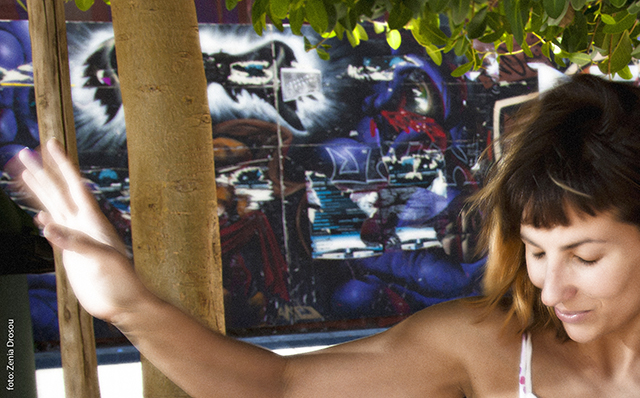
She was born in Crete, Greece.
Georgia is a member of the organising committee of the International Contact Improvisation Festival in Crete, founding member of Fysalida Dance Company and an external associate of the Dance Centre based at the Pancretan Stadium’s facilities in Heraklion.
She studied classical and modern dance in England and continued her postgraduate dance studies in specialising in contemporary dance and choreography at the Rotterdamse Dansacademie in Holland with a grant from the Alexander S. Onassis Public Benefit Foundation. Having received a bursary, Georgia Petrali was Greece's first participation in the international dance festival, Dance Web in Vienna in the summer of 2000.
From 1998 to the present day, she has taught movement, improvisation, classical ballet and contemporary dance in England, Switzerland, Portugal and Greece. In 1999 she ‘discovered’ contact improvisation and ever since has declared herself to be ‘in love’ with it. She started teaching contemporary dance and contact improvisation on Crete in 2002.
As a dancer she has collaborated with the Manc Dance Company, the Terpsicorrick Dance Company, Doris Vuilleumier, Haris Mantafounis, Artemis Ignatiou, Natasa Zouka, Carol Brown, Luca Silvestrini, Dimitris Papaioannou and Angeliki Stellatou as assistant choreographer for the Opening and Closing Ceremonies of the Athens 2004 Olympic Games.
In 2006 she founded the dance company ‘Fysalida’, based in Heraklion, Crete to explore, create and present artworks in the regions through collaboration with artists, educators, therapists, scientists and ordinary people from Greece and abroad.
‘Community dance’, improvising, contact improvisation, dance-theatre and socio-political-cultural activities and research are characteristic technical features and well-trodden ‘emotional paths’ in the artistic activities and productions prepared by Georgia Petrali.
For more information: www.fysalidance.com
Suspended while Floating (Georgia)

By using breathing exercises, body positions used on a day-to-day basis, and simple contemporary dance and improvisation techniques, we will attempt to make the body conscious of what is needed to move with clarity, flow and awareness of its own movement.
Our goal is to discover the different qualities of each and every movement and to explore the flow of the movement within the body and space in which we exist. We will focus our attention on the moods which we experience and on how they affect our relations with the rest of the group.
What is of concern is to discover space within and outside our body, setting the rate and pace of our own self and utilising time via the different melodies that a properly trained body can generate.
The principle of movement, and of maintaining and developing that movement via bodily contact, the unpredictability of each and every moment and the forces of physics (gravity, controlled impetus, continuous flow and action/reaction) lead bodies to co-exist as a unique entity, a web of movements which are constantly evolving and reforming, changing shape within space and time.
Collective effort and a personal exploration carried out by each member of the group, trust and frankness, concentration, precision, awareness of and care for the body will be the main tools employed as the seminar unfolds and develops into something deeper and more instinctive.
Parent & Kid Contact (Georgia)
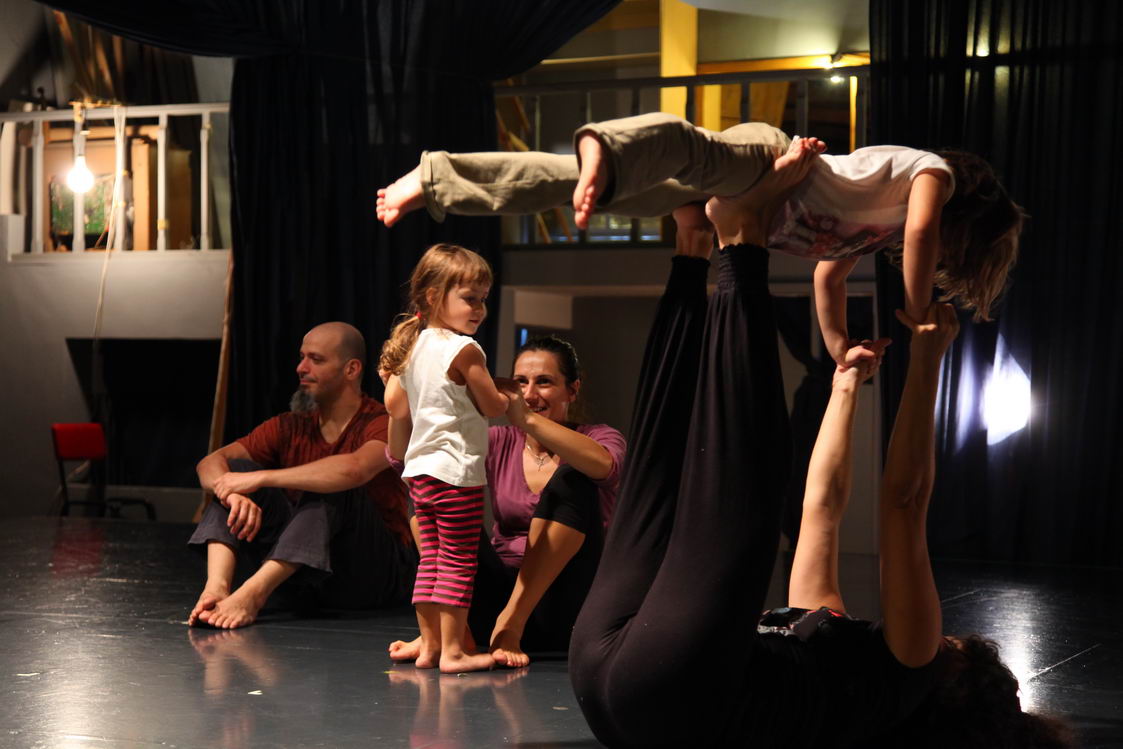
Movement and expression are just as important for children as they are for adults. We have developed an activity encompassing the relationship between parents and children that encapsulates movement, expression and creativity.
Through games, images and the body positions we use every day we will attempt to restore the vitality and joy to our bodies that is needed for it to move carefully, flowingly, with emotion and imagination. We will utilise simple improvisation techniques, exercises and images that can help expand our imagination.
Taking a joyful and enthusiastic approach, we will be concerned with discovering the space within and outside our body, setting the rate and pace of our own self and utilising time via the different relationships and conditions that a body can generate and produce.
By exploring the relationship between parent and child, through collective movement, we seek to get to the roots of real relationships and to understand group structures in general.
We invite all parents, mums and dads, to bring their children along and to move around and express themselves along with us!
Children's ages. 2-5 years old.
Parents should come equipped with: love, interest, a desire for action and a sense of imagination about what children can do, about movement, and about being in a group.
Milka Panayotova
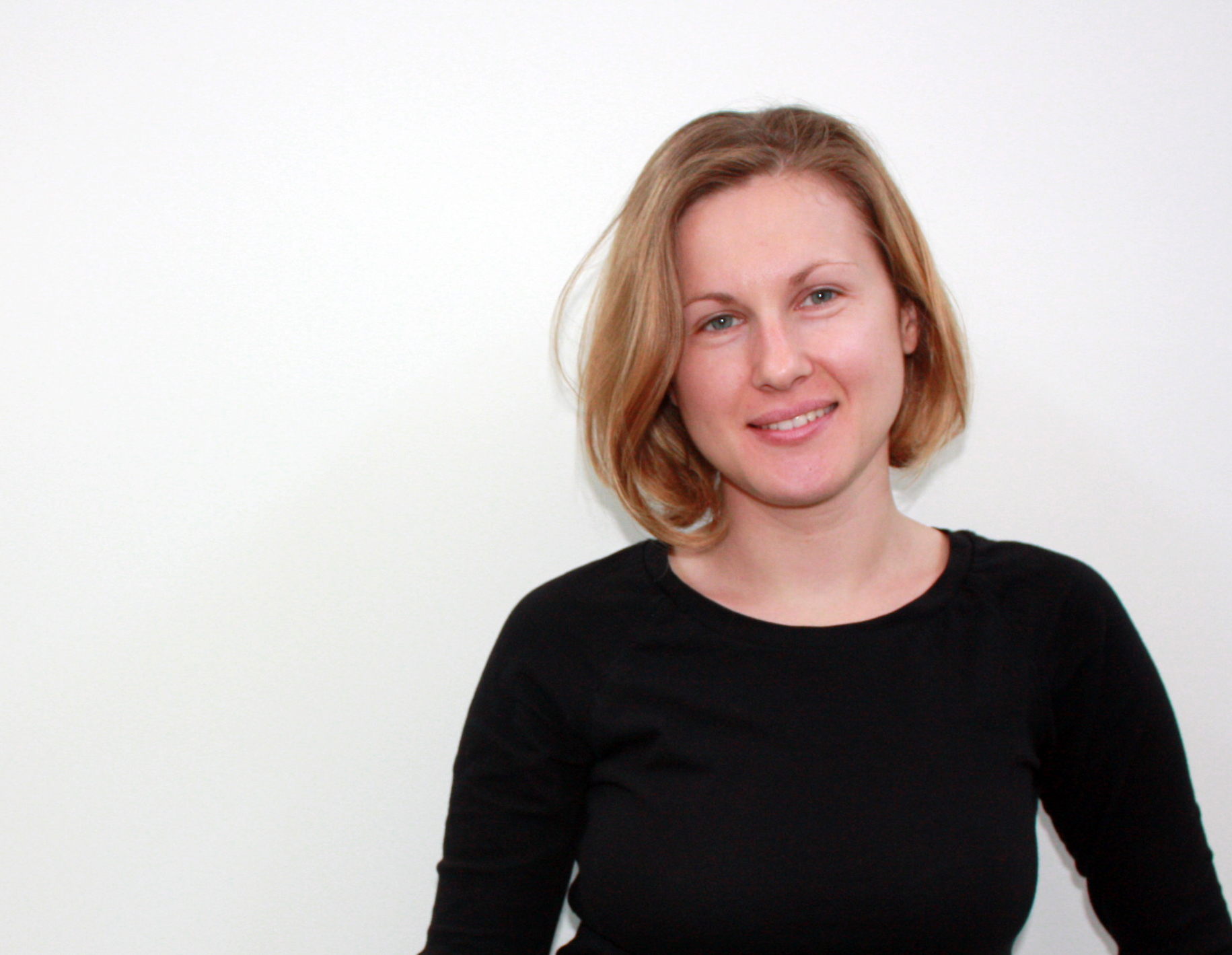
Milka Panayotova is a performance maker and visual artist, who has been directing and performing for her own work as well as collaborating with other theatre directors, choreographers, dancers and curators. Her involvement in dance and movement comes from the interest in the awareness and behaviour of the human body within a certain space and settings.
Her academic qualifications include a BA in Fine Art (2006, Florence, Italy) with a thesis on light and space artists and an MA in Theatre: Visual Language of Performance (2010, London, UK) where her research focused on the role of the senses within performance in relation to audience participation.
Originally a visual artist, after participating in performance productions conducted by theatre director Fabrizio Crisafulli in Florence (Italy) in 2003, Milka became increasingly curious about the different forms of expression of the body. She studied and followed classes and workshops in contact improvisation, instant composition, yoga, capoeira and butoh in the UK, Italy, Greece and Cyprus. Between 2007-2009 she was part of the dance company Collettivo Almagesto, with which she performed a number of site specific pieces for festivals across Italy, including Santarcangelo Festival in 2008.
Recently, Milka has been experimenting with the roles of the senses in relation to bodily response and the generation of movement in the absence of sight. Through the creation of the performance “Blind Trust” (London, 2010) where a sensorial journey was conducted by performers for audience members, Milka has developed a way of working that challenges the conventional use of vision to create movement and has worked with both professional dancers and amateur performers, so far in the UK and Italy, exploring the possibilities and limits of movement in the absence of sight.
For more information: http://milkapan.com
Sense Vision (Milka)
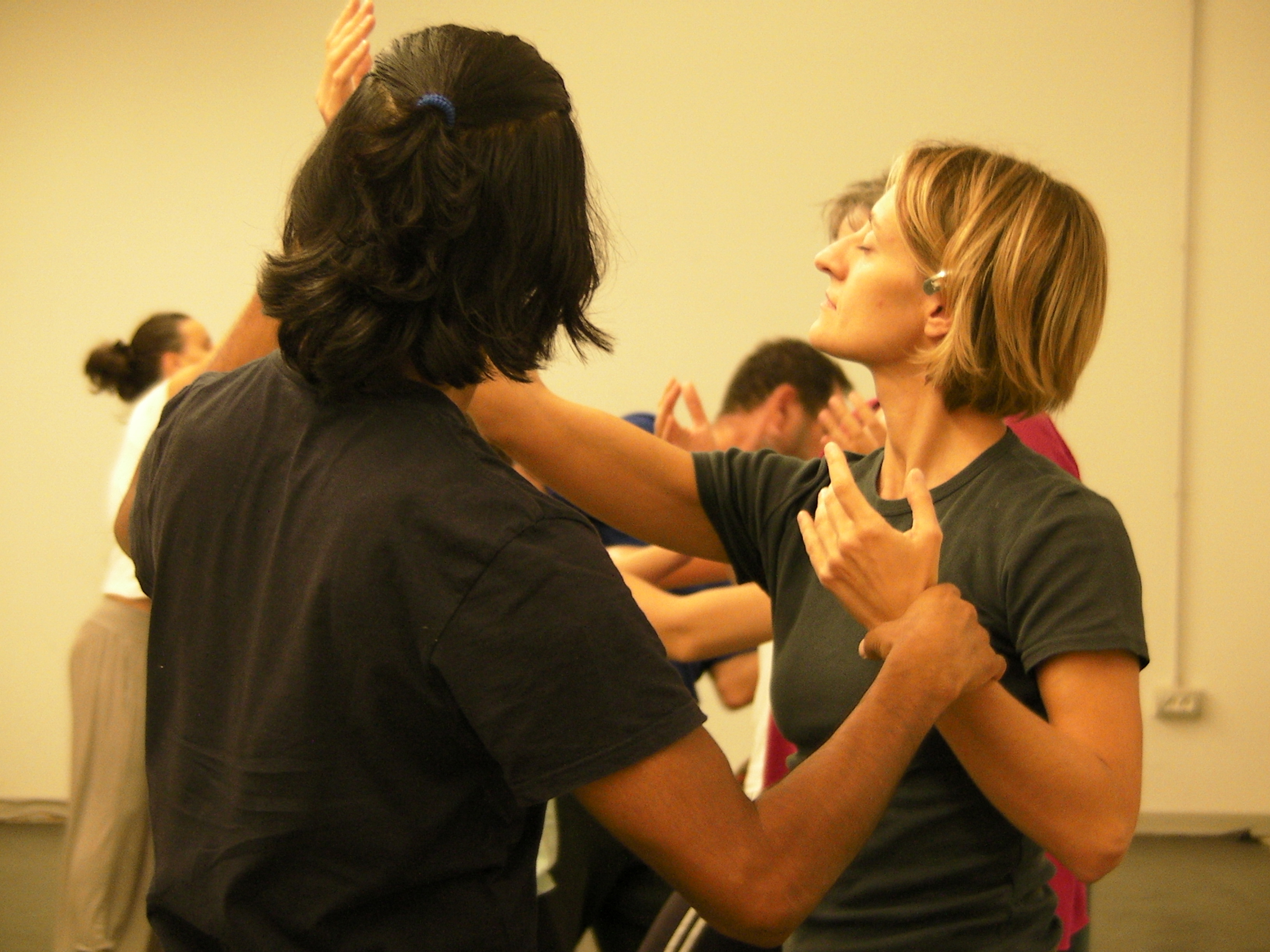
The workshop gives participants the opportunity to filter their relationship with the body and its natural movements through the use of touch, smell and hearing. The sense we mostly rely on as social beings, sight, is compared to the “less” used senses and their input in creating perception and generating movement. Equal importance is placed on the relationship with the surroundings and the other performers and the style of movement that each participant has.
Based on the exploration of the senses as the initial drive of generating movement and communication, the main techniques used for the workshop are contact improvisation, instant composition and the visualisation of images used by some butoh masters. Further, sensory deprivation, such as the “elimination” of sight and hearing are also part of the techniques used.
This workshop puts together a series of experimental exercises, individually, in pairs and as a group to give the tools to participants for observing dance and movement beyond its visuality.
Thalia Ditsa

Thalia Ditsa was born in Glasgow, Scotland and studied Physics in Crete. From 2001 onwards she has been interested in movement as a dancer, teacher and choreographer.
As a dancer she consistently worked with Maria Angelou’s dance group ‘14th day’ over the period 2001-2009. At the same time she has worked with other choreographers including the Sun+ergasia group, Afroditi Vervenioti and Sumako Koseki. She has choreographed small dance pieces (A road to the world, Long Roads, Beyond the movement an animal, Beyond an animal the sound) and developed the on-stage movements for various theatrical performances (Erotocritus, Elias Karallas Theatre Company, H2O Space, Mavro Skyli Company, Mia Trelli Mera, Saltibanghi Theatre Company).
She has trained as a Pilates instructor and finished post-graduate studies in choreography at Falmouth (incorporating Dartington College of Arts) in the UK cum laude.
She teaches Pilates, movement and improvisation in Athens. She explores improvisation and movement in relation to the body’s structure, respecting its functionality and anatomy. She is influenced by release techniques in modern dance, BMC and Butoh dance techniques which she has studied in detail at the side of her Japanese teacher, choreographer and dancer Sumako Koseki.
She is also interested in the balancing, therapeutic and educational side of movement, topics which lie at the core of her teaching.
Improvisation - Composition - Choreographic Exploration
Building shared dance from a point of Contact (Thalia)
A warm-up which includes the use of breathing, voice and body and contact are key aspects used to be ready and open for personal improvisation.
The exercises used in the warm-up function as a way of entering what we call the ‘creative process’ or ‘composition’. Later on those same exercises are developed as a group or in pairs to explore how different contact dynamics lead us to create different movement phrases, generating material to be used in choreography.
Contact is used as a springboard for choreographic exploration and is aimed at anyone who is willing to explore this process.
Previous experience in movement is preferred but long-term experience with movement or contact improvisation is not essential.
This choreographic exploration process focuses on teaching choreography, on communication between performers and the choreographer, and on decisions and choices that can arise via such a process.
Anastasis Koutsogiannis
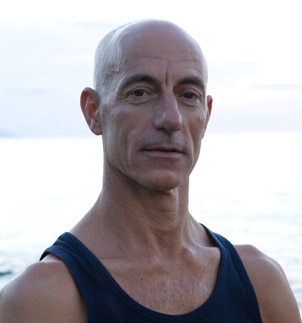
Anastasis is a certified Hatha Yoga teacher, massage therapist and former professional dancer who began the yoga journey in 1994 in Varanasi (India). He is now giving classes in Hania and also participates in various seminars in South East Asia and in Greece.
He studied Hatha, Ashtanga and Anusara Yoga in India with B.N.S. Iyenkar, in Thailand with Yonas Westring and in America with Richard Freeman and at several Yoga & meditation retreats.
His teaching is a blend of this broad & extensive background with Anusara inspiration.
Partner Yoga
Sharing the joy of Yoga (Anastasis)
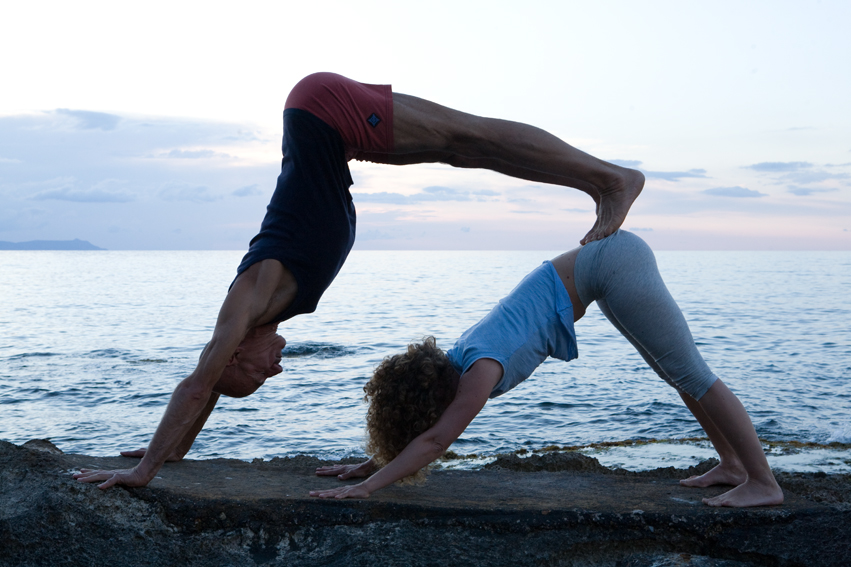
Partner Yoga deepens our understanding of Yoga and our awareness of others.
Yoga is a way of uniting the self with the world.
Yoga with a partner-breathing together, guiding and supporting one another is a creative and playful journey that connects us to each other in the present moment.
ps: bring your yoga mat, or even better a camping mat and a towel.
Nikos Dalamagkas
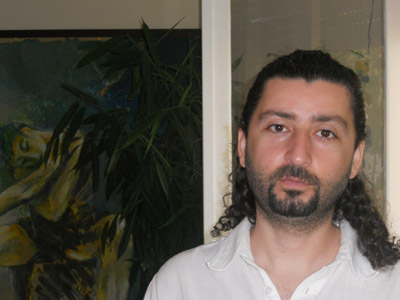
From an early age, Nikos Dalamagkas was involved in dance and music. Somewhere along his dance career, having explored various types of dance, he discovered tango argentino. He studied it; explored it and learned much and travelled to many European milongas and festivals dancing until he could make his dream a reality: he visited Argentina and stayed in Buenos Aires, learning more about the various styles of tango, kinesiology and choreography. He is the organizer of the Tango Festival: Sunny Tango Vacations.
His studies in physics, his involvement with music, tai chi, body expression and contact improvisation have affected how he teaches tango, allowing him to maintain a balance between and respect for tango traditions while integrating new developments too.
Contact Tango
a Tango tree in a Contact forest (Nikos)
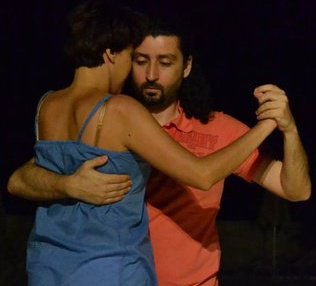
We will start off by working on basic tango techniques so that we all acquire a common tango vocabulary. Using elements from contract improvisation, we will examine key principles of musicality, expressiveness and improvisation in tango.
Drawing on images and ideas from our day-to-day lives as inspiration, we will explore the power of a tight embrace and relaxation from it in order to achieve a more flexible and interactive relationship between the pair. We will discover more contact and tango dance methods, beyond the classical chest-to-chest embrace. Every point of contact can become an embrace with one or more fellow dancers. The pair no longer needs a leader and a follower. Both lead and are led at the same time.
Anyone who has any experience with tango, contact improvisation, modern dance or some form of dance and movement, no matter how little, can take part in this seminar. It is not necessary for you to come with a dancing partner. Wear comfortable, loose clothing and soft shoes without any heel, or alternatively wear socks, or even better still come barefoot.
Uli Kaiser
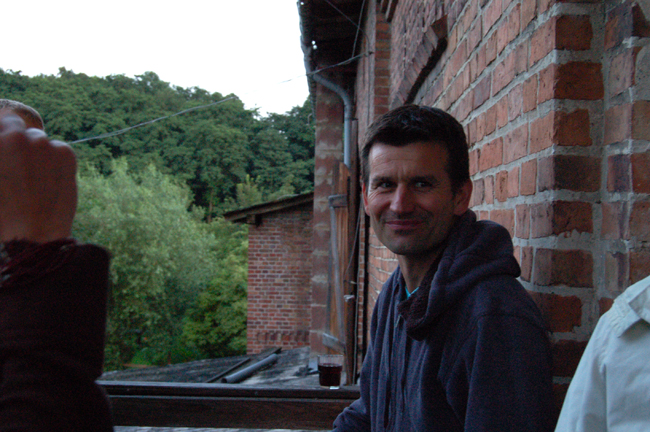
Uli Kaiser has been a certified physiotherapist and shiatsu-practitioner for the last 15 years. Founding member of Shiatsu-Mitte, a space for Shiatsu and bodywork in Berlin.
He is now living at the Ponderosa Dance Center in the countryside working from time to time as a physiotherapist with a shiatsu-based approach treatment.
Shiatsu
Shaking, rocking and lenghtening - Warm up or cool down with Shiatsu-techniques (Uli)
The Workshop will introduce you to basic Shiatsu techniques and principles, with special attention being paid to flexibility, posture, and alignment. Everybody is welcome!





